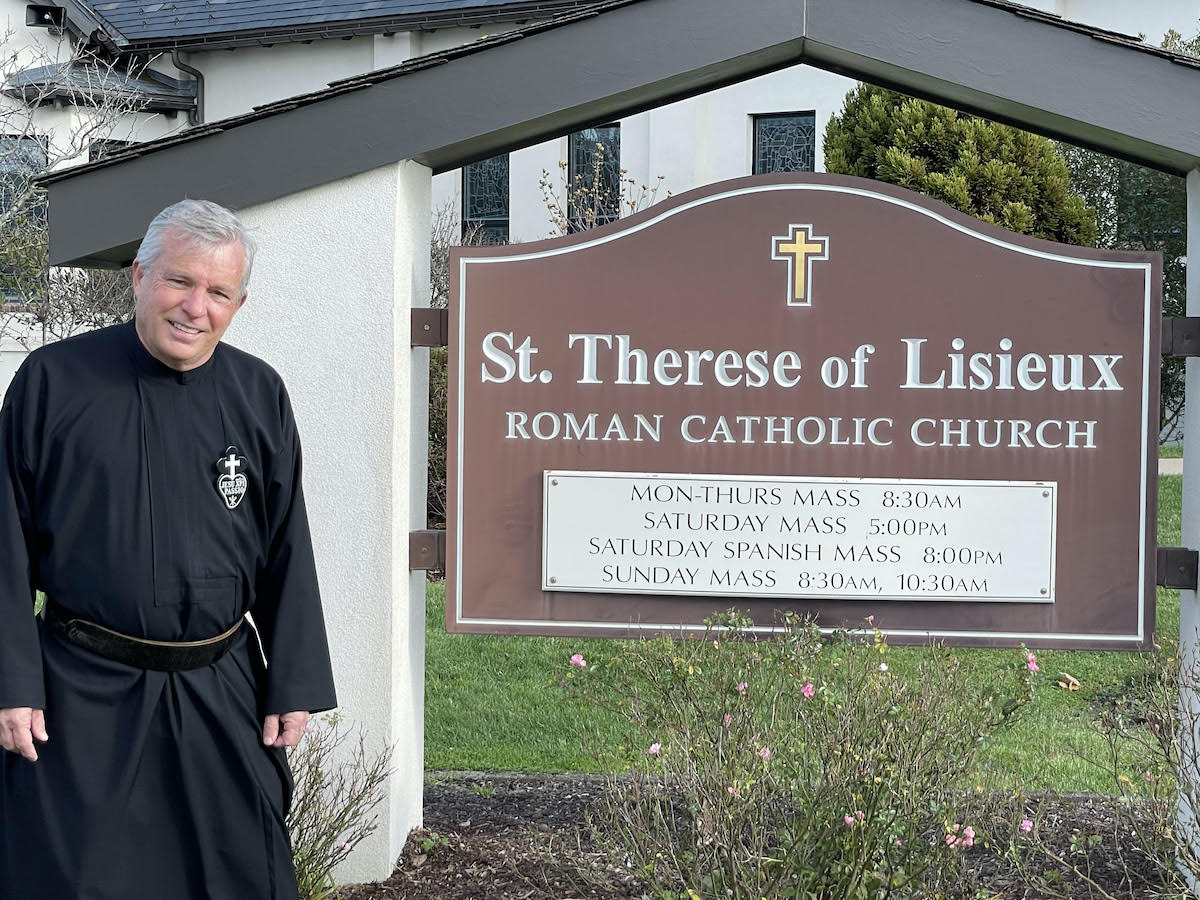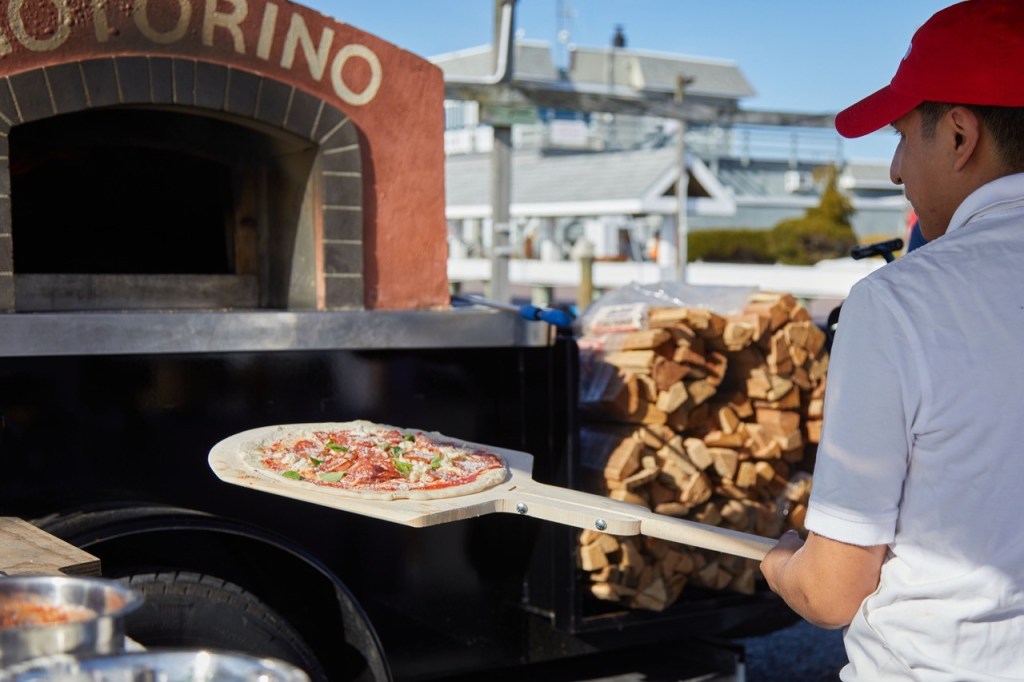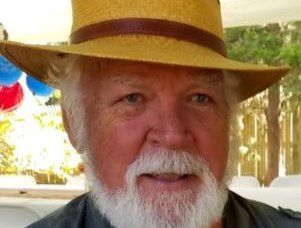Father Robert Joerger Finds a New Beginning at The End

“I wanted to do something completely different, so I signed up for culinary school. I started at the French Culinary Institute, but that was way too high-powered for me. They said, ‘Oh, the French chefs will be happy, you won’t have any bad habits to unlearn.’ Well, they were not happy at all—I had no idea what they were talking about in class, and everybody else had been working in kitchens for years, and I didn’t even know how to hold a knife.”
Sitting in Montauk, Robert Joerger laughs as he remembers the time. “So I went to the Peter Kump School of Culinary Arts. One of my professors, Shirley King, used to cook here in Springs, and then she became the chef at a famous restaurant in Manhattan,” he recalls. “She wrote the section on fish for The Joy of Cooking, so I’m going to get out her books and her notes and learn how to do fish again.”
Joerger is not the newest chef to arrive in Montauk, and he does not go by Chef Bob. Rather, he is Father Bob, the newest priest at St. Therese of Lisieux, having joined the church at The End during the first week of November. The proximity to fish is something he looks forward to, to put to use the skills, such as they are, learned at culinary school during a year-long sabbatical some two decades ago. But it is the fishermen, the community, the people that he has come to admire and the work that lies ahead here, that truly move him.
“As far as the East End goes, it captures my soul somehow. It’s the ocean and the changing of the weather and the tides, the nature—for a guy from Brooklyn, it’s quite a change. But I think I like the fact that it’s out there, it’s an island. I’m a missionary at heart, so it’s all those things. And it’s where I began. The people teach you how to be a priest. You learn all sorts of stuff in the seminary, but it’s the people and I never forgot that. My first nine years on Shelter Island—they taught me how to be a priest.”
Joerger served as Provincial Superior of the Saint Paul of the Cross Province of the Passionists—which includes Canada, the Eastern United States, Jamaica, Haiti and Puerto Rico—as well as Consultor to the Superior General of the Passionists in Rome. Yet he says that his favorite place is right here on the East End. Some 43 years ago he began his priesthood on Shelter Island, where he was not only Director of Saint Gabriel’s Youth Retreat House but also a member of the Shelter Island Heights Fire Department, and he sees similarities between the spirit of the island surrounded by islands and Montauk.
“It’s real people, down-to-earth people,” he says of one of his earliest observations about his new home. “The very things that people tell me they love about Montauk, I find those too—it’s the village, it’s the way people care for each other. The people are really salt of the earth. I keep telling them that if Jesus were around today—he went to the fishing villages to find his disciples—he’d probably go here to The Dock or Liars’ Saloon. You needed guys who could tell long stories, but who essentially would always have your back.”
He already senses that spirit here. As he prepared to preside over his first-ever confirmation, he turned to the book A Speck in the Sea—about the true life lost-at-sea survival and rescue of Montauk lobsterman John Aldridge—for inspiration on the homily he would deliver the group of 14-year-olds. The story of support and never giving up to help another in need to the point of saving a life, well, “the most important things in life are those kinds of values.”
He has yet to meet Aldridge and Anthony Sosinski, the friend and fishing partner who was at the fore of the rescue effort, but meetings are tough these days, clearly. That’s a notable obstacle for a man whose goal is to gather a community. “It’s a little bit more difficult to get to know people right now, since there’s nothing social we can do,” he admits. “I meet people after mass or here and there along the street, but everybody has masks and sunglasses, so it’s hard to put faces with names,” he laughs, “but I’ll get there.”
The challenges of bringing people together these days is hardly only a physical one. “It’s a very divided time, in terms of politics in the country but also within the church,” Joerger observes. “We dismiss too much, saying things like ‘This is all liberal, the left, and this is all the right, they all want to go back to the past’ in terms of the church or the country. And I think all those kinds of characterizations of people really, really don’t help. Can we just talk to each other and try to listen to each other? What can we build together? What is common to all of us—our hopes and dreams and families—those kinds of things that can move us forward.”
He pauses, the seriousness giving way to a knowing smile. “Hey, you just got my Sunday homily.”



